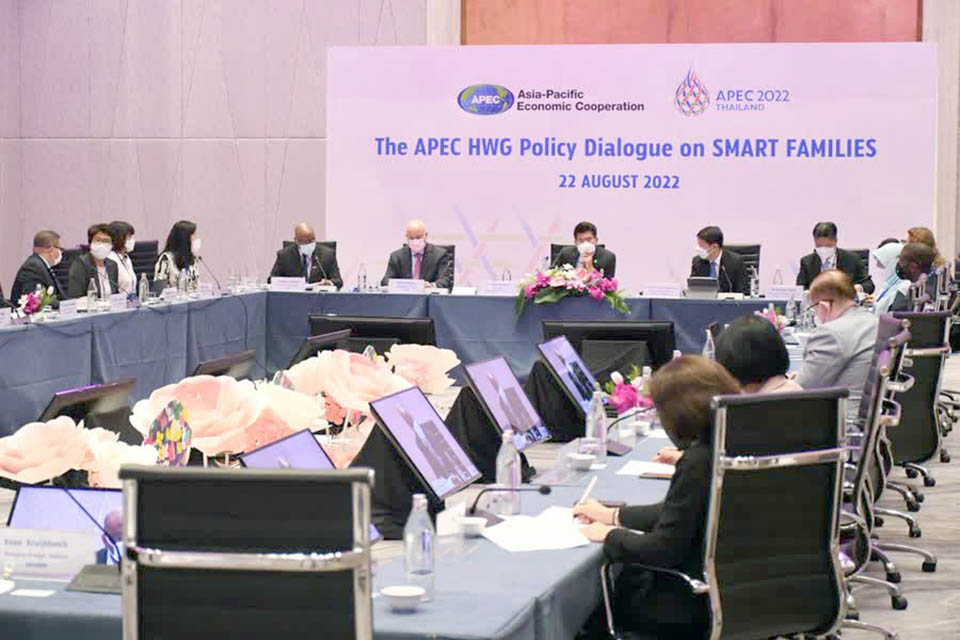
APEC Health Week is taking place in Thailand from Monday (22 August) until Friday. The Ministry of Public Health is hosting the High Level Meeting on Health and the Economy (HLMHE) in Bangkok. Ministry officials presented their ‘Smart Family’ policy to address low childbirth and mitigate impacts on labor and the economy.
On the first day of APEC Health Week, deputy public health minister Sathit Pitutecha inaugurated a policy dialogue on the topic of Smart Families. He said 17 of the 21 members of the Asia-Pacific Economic Cooperation (APEC) are facing demographic problems. Specifically, overall fertility rates in these 17 economies are lower than the rates needed to sustain their populations. This results in a tendency for a population decline and could have long-term impacts on each of the 17 economies. Mr. Sathit said Thailand is one of the said economies, with the country of 66 million having recently become an ageing society. The country is on course to becoming a ‘super-aged’ society in due course.
The deputy health minister explained the meeting allowed APEC representatives to have exchanges on their economy’s demographic situation. Health officials, family planning experts, civil society members, and private sector representatives also participated in the talks. Among the sub-topics discussed included fertility planning, avoiding unintended pregnancy, and Thailand’s ‘Smart Families’ program.
Department of Health Director-General Suwannachai Wattanayingcharoenchai said Thailand had implemented 3 phases of demographic policies. The initial phase had to do with encouraging people to have more children. This resulted in Thailand’s population rising to 26.3 million in 1960 from 14.5 million in 1937. The second phase involved the promotion of family planning, starting in 1970. Consequently, the rate of people practicing birth control rose from 14% to 72%. The third phase is the present period, when the demographic structure is more complex than in the past. Unintended pregnancy, teenage pregnancy, unwanted pregnancy, and unsafe abortion also exacerbate Thailand’s decline in fertility.
In support of the Smart Family policy, a number of laws and relevant policies have been issued. Among these were the 2nd national fertility development strategy and a law on the prevention and remedy of teenage pregnancy. The latter has allowed the delivery figure among teens aged 15-19 to drop by half. It also mitigated the problem of teenagers dropping out of the education system by enabling welfare for teenage mothers. (NNT)
 |
 |
 |





